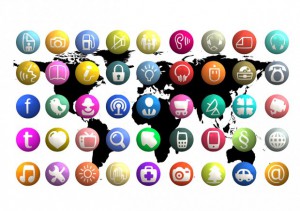The result of the ISACA IT Risk/Reward Barometer survey for the year 2013 has yielded some revealing data that confirms the non-stop growth in the number of users who are integrated into the digital world in Latin America. It appears that network interconnectivity involving everyday objects such as telephones, electronic devices, cars or appliances, among others, already forms part of the reality of many Latin American companies. In fact, 50 percent of all companies currently have plans to capitalize on their lines of business by taking advantage of the emergence of the Internet of Things phenomenon in Latin America.
This annual barometer is an overall indicator of the degree of confidence in information technologies, based on the opinion of thousands of IT professionals as well as the opinion of thousands of consumers around the world, in order to gauge the degree of trust in new technologies and to take stock of the risk/benefit ratio resulting from their use.
This barometer assesses the risks and benefits within the area of technology such as the Internet of Things, Big Data and BYOD, based on the survey conducted of 2,013 professional people who are members of the ISACA association around the world, 119 of them in Latin America, as well as 3,226 consumers located in four countries, including 1001 from Mexico.
However, the conclusions of the barometer reveal that one of the regions where there has been further growth in the online audience is the Latin American region with a total of more than 147 million active users. Therefore, it is not surprising that this trend has aroused the interest of companies in the Internet of Things, inspired in part by the huge potential that this technology offers for increasing their volume of business.
Key issues such as improving customer service by 54%, increased customer satisfaction by 52%, a 51% increase in employee productivity, increased efficiency of around 49% and 46% improvement in access to information are the main benefits that encourage many of these companies to join this networking technology.
On the other hand, it also points out that 40% of the IT respondents state that their major concern about new technologies involves the use of personal information stored on devices. This concern is even more pronounced in the case of Mexico, where according to the Study on the Protection of Personal Data between Users and Companies carried out by AMIPCI, 31% of Internet users there still do not have a clear idea of what information should be considered as personal data.
Since some reports predict that it is anticipated that more than 50 billion devices around the world will be connected to the Internet by the year 2020, ISACA is recommending that all these companies follow some basic principles in order to stay adaptable in a connected world. The immediacy that the network, security in the management of information, identification and online monitoring of anticipated benefits, the creative and innovative use in managing the Internet of Things to communicate with customers and establish specific business strategies are key to remaining adaptable in the age of hyper-connectivity, according to ISACA.
You can read the original post in Spanish in the Think Big Blog.

Miguel A. Perez, Architect and editor in the Think Big Blog










